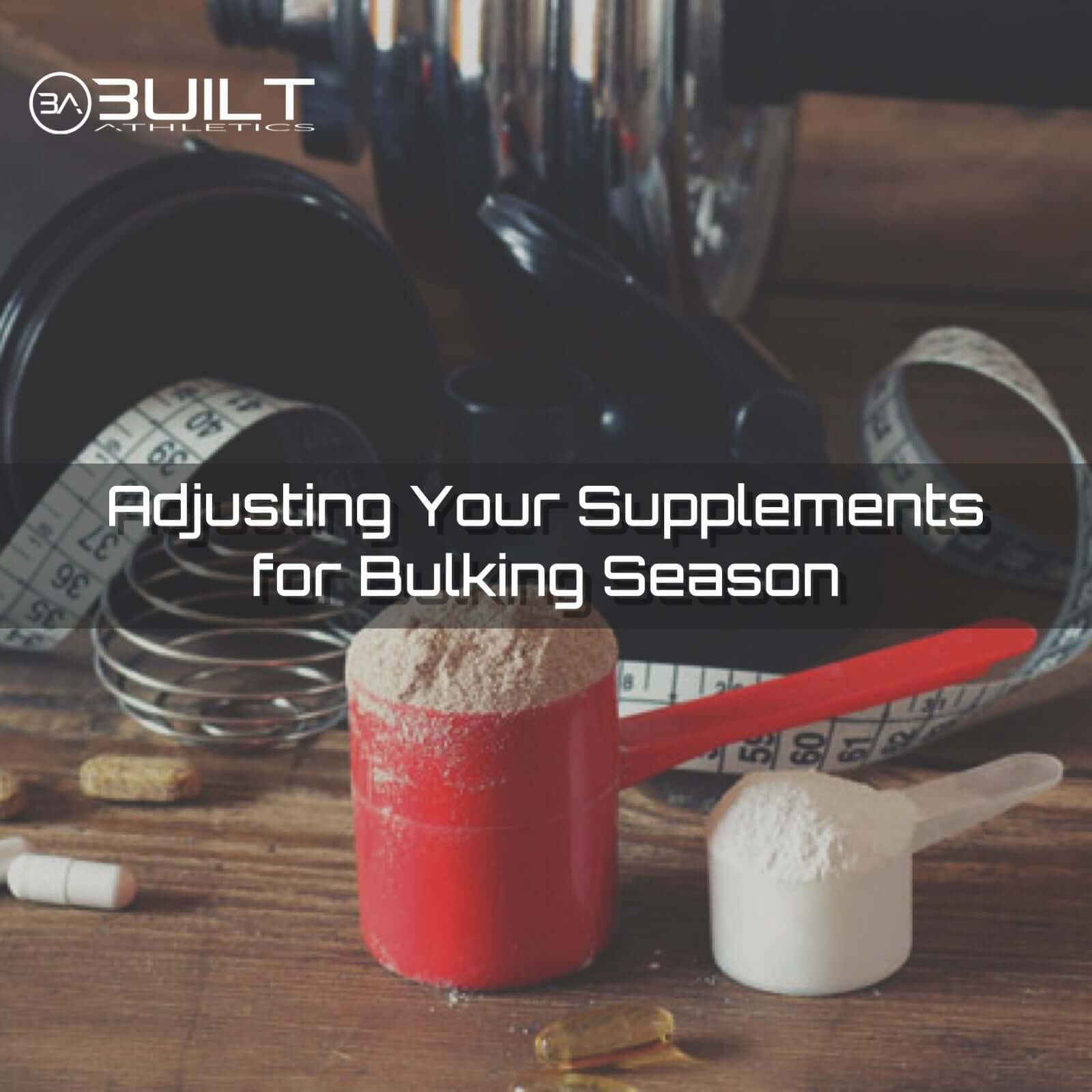Making strategic tweaks to your diet, training, and supplement routines can go a long way in helping you reach any health, fitness, or physique goal. And that’s especially true if you’re shifting your focus towards bulking up, as many seasoned gym-goers and bodybuilding enthusiasts do when the winter months roll around.
Supplements To Add During Bulking Season
If the following sports nutrition supplements aren’t already a part of your routine, make sure to incorporate them.
1. Creatine Monohydrate
Creatine is one of the most-used—and most-researched—supplements in the sports world. The natural compound, which we need to create adenosine triphosphate (ATP), our body’s energy source, provides fuel for the first six to eight seconds of effort during intense exercise.
Our body already produces creatine on its own, the bulk of which is stored in our muscles. However, we can also get creatine from food and supplements—and there are plenty of reasons to do so.
According to one review published in the Journal of the International Society of Sports Nutrition, the average diet only ensures your creatine stores reach 60 to 80 percent capacity. Supplementing with creatine, meanwhile, can help you get to 80 to 100 percent.
If creatine hasn’t been part of your supplement stack thus far, get your muscles up to speed with a creatine-loading phase, says Jacob Wilson, Ph.D., C.S.C.S.*D.
A creatine-loading phase involves taking four or five servings—about 20 grams total—of a creatine supplement per day for five to seven days, which research suggests is the most effective way to increase your creatine stores. After that initial loading phase, stick to a standard serving of five to 10 grams of creatine per day either pre- or post workout, Wilson says. (Though you’ll see a few different forms of creatine out there, creatine monohydrate is the most popular and well-researched.)
2. Whey Protein Isolate
If you struggle to achieve a daily protein intake of one gram per pound of body weight, protein powder can be a great addition to your routine.
We recommend a protein supplement made of whey (a liquid by-product of milk), which provides your body with the amino acids it needs to build muscle. In fact, the amino acid composition of whey is very similar to that of skeletal muscle, meaning that it provides nearly all amino acids that your muscles need—and in the right proportions, research shows.
Plus, whey is a fast-acting protein; it takes your body just about two hours to absorb 20 grams. Because of this, whey protein is especially clutch for kick-starting the process of muscle recovery and building post-exercise.
Grab a serving or two right after working out.
3. Branched-Chain Amino Acids (BCAAs)
BCAAs, or branched-chain amino acids, are protein building blocks comprised of three of the nine essential amino acids: leucine, isoleucine, and valine.
Each BCAA plays a unique role in muscle repair. Leucine has been shown to have the greatest impact on muscle protein synthesis (the process of rebuilding protein to repair muscle damage), whereas isoleucine helps your immune system function properly and maintains energy levels. Valine, meanwhile, contributes to muscle growth and tissue repair, energy, and muscle coordination.
Combine those three into a single supplement and you’ve got a potent ally for your bulking phase.
While BCAAs can be helpful for all muscle-building maniacs, vegan and vegetarian athletes should pay particular attention to them. Since vegan protein sources often aren’t as effective for muscle-building as their animal-based counterparts, non-meat-eaters can take a BCAA supplement alongside meals to ensure they’re getting all of the amino acids and protein they need to pack on mass, Wilson suggests.
For best results, vegans and vegetarians should take five grams of BCAAs with every meal, he says. Other athletes should stick with five grams pre- or post-workout.
4. HMB
The final must-have supplement to consider adding to your bulk stack: hydroxymethylbutyrate (HMB), a substance your body produces when it breaks down leucine. (Remember, leucine has been credited as the key BCAA for protein synthesis and muscle repair.)
The perk of adding HMB is that it may help you recover faster after really intense workouts, Wilson says. The reason? HMB has the ability to stimulate protein synthesis and minimize muscle breakdown.
So, if you’re training hard and often, HMB can help you to bounce back and feel top-notch by your next training session, so you can put in the work required to make the gains you’re looking for.
Wilson recommends supplementing with three grams before each workout.
Supplements To Pause During Bulking Season
You’ve heard the phrase “timing is everything,” and it applies to your supplement routine, too. If you use caffeine, thermogenics, or other stimulants to support fat-burning throughout the warmer part of the year, retire them for bulking season.
For one, the extra calories (and other supplements) you consume daily throughout bulking season should give you the energy you need for your workouts and recovery. Plus, the appetite-suppressing effect of stimulants can add a challenge for people who struggle to meet their daily calorie needs for bulking.
Not to mention, taking stimulants long-term can make it harder for you to drop fat when you’re actually ready to focus on cutting because your body becomes so used to them, Wilson adds.
So, do yourself (and your gains) a favor: Save the get-shredded products and stimulants for springtime.

